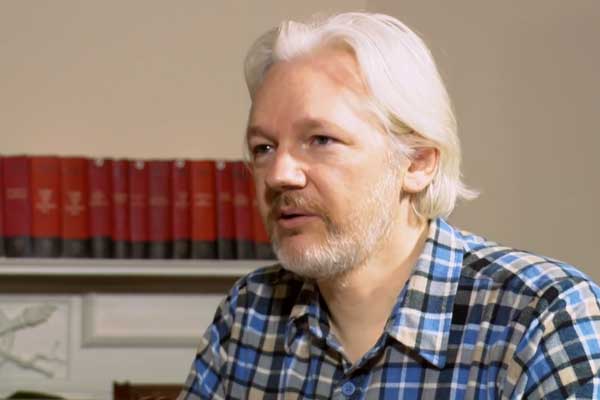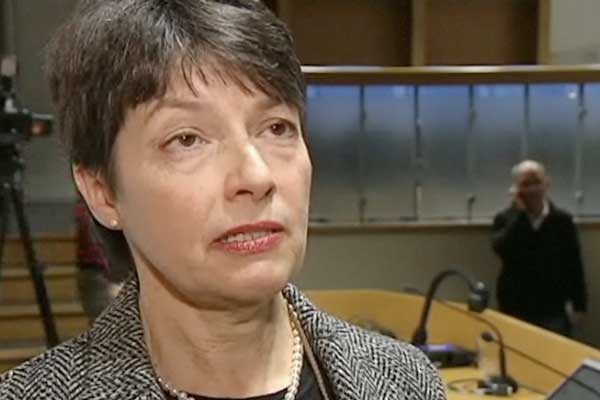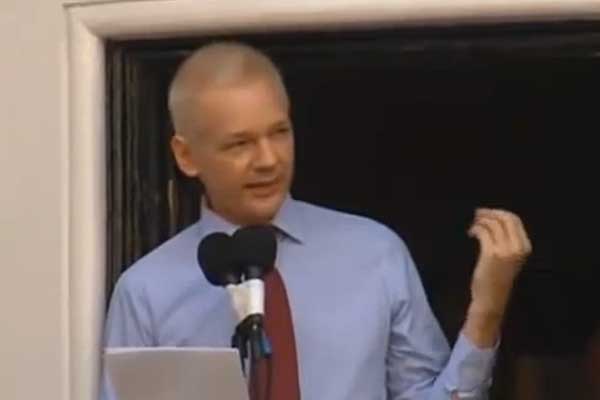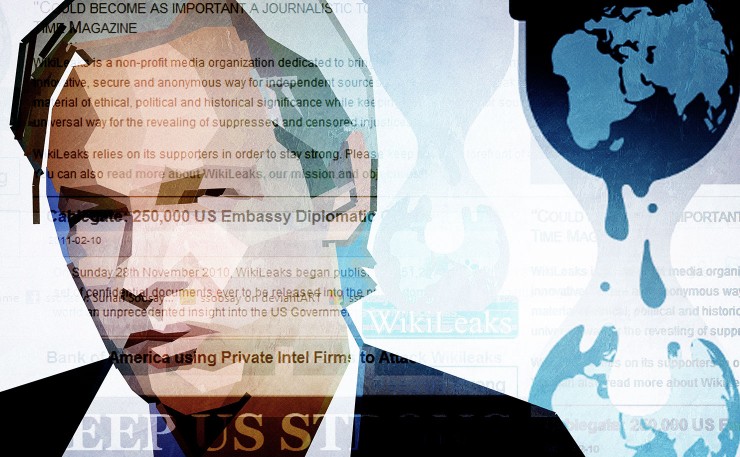As of February 2015 Julian Assange has spent more than two and a half years in the Ecuadorian embassy in London, protected by political asylum granted in August 2012. Before that he was under house arrest for close to two years when the extradition request to Sweden ground through the UK court system.
In the current situation it’s easy to forget that the relationship between WikiLeaks and Julian Assange and Sweden started based on mutual attraction.
Sweden has one of the most far-reaching journalistic source protection systems in the world. Its constitutionally backed Meddelarfrihet (Sourceprotection) is the polar opposite of how whistleblowers are often pursued, even in mature democracies like Australia. In practice the Swedish source protection laws mean that any public servant, regardless of rank in the organisation, has the right to leak government held information to a journalist and enjoy anonymity (provided it is not a matter of national security).
The legal protection is so potent that journalists are bound by law not to disclose the source if anonymity has been granted. The punishment for revealing the identity of a source is a fine or a maximum jail term of one-year.
Crucially for Assange and Wikileaks, under the Swedish source protection laws heads of government departments or ministers are not allowed to investigate the identity of an anonymous source. This is also punishable by a fine or a maximum one-year jail term.
On the other side of the source protection continuum we find Australia, whose section 70 of the federal Crimes Act states that:
“A person who, being a Commonwealth officer, publishes or communicates, except to some person to whom he or she is authorized to publish or communicate it, any fact or document which comes to his or her knowledge, or into his or her possession, by virtue of being a Commonwealth officer, and which it is his or her duty not to disclose, shall be guilty of an offence.
Penalty: Imprisonment for 2 years.”
In August 2010, Assange wanted to investigate if it would be possible for WikiLeaks to register as a publisher in Sweden. This would potentially extend the Swedish source protection to the informants choosing to supply WikiLeaks with sensitive information. It was a marriage made in heaven – the then funkiest event in journalism and publishing in many years, wedded to the most extensive source protection system in the world.

Riding high on the global fame that the publication of the ‘Collateral Murder’ video had brought WikiLeaks, Assange was treated as a celebrity on arrival in Sweden.
The celebrity shine quickly faded when two women who had offered Assange accommodation reported him to the police for sexual molestation and possibly rape.
The claims
Much has been written about Julian Assange, the allegations against him and the Swedish justice system. More than enough for this article to focus on the two claims at the centre of the current deadlock, rather than the allegations as such.
• Claim one: Julian Assange and his legal team says that extradition to the US, where a possible espionage trial with a lifetime in jail awaits, is more likely from Sweden than from the UK. If the claim can be proved wrong (or a guarantee issued by Sweden that he won’t be extradited) Assange is willing to be interviewed by Swedish police in Sweden.
• Claim two is made by the Swedish prosecutor, Marianne Ny. Her argument is that “a request for legal assistance involving the questioning of Julian Assange in London would not take the case forward in a significant manner.” Ms Ny has consistently turned down interview requests during the more than four years this investigation has been open – referring to the fact that the investigation is ongoing and that it’s inappropriate for her to comment. If it can be demonstrated that Assange could be interviewed satisfactorily by British or Swedish police in London or via video link, the prosecutor’s case that Assange must be interviewed in person in Sweden crumbles.
To assess the claims that have caused the deadlock, three independent legal academics were asked to scrutinize – based on legal precedents, their research and their experience – the core claim on each side. The experts have no connection to any of the sides and no stake in the case. This methodology excluded any of the lawyers representing either of the sides.
Claim one
The first analysis is provided by Pål Wrange, Professor in Human Rights Law at Stockholm University, who has extensive practical experience of international law. Professor Wrange’s conclusion regarding claim one is:
“The possibility of extradition exists, but a number of conditions must be met (including that the crime is not considered political), and it is far from certain that a US extradition request would meet such requirements.”
He further points out, in his extensive blog post assessing claim one, that the Swedish extradition Act would not allow for extradition if a possible US charge against Mr Assange is espionage. This is a considered a political crime and the Swedish law does not allow extradition for political crimes.
According to Professor Wrange, Julian Assange can only be extradited if the crime he is accused of is of non-political criminal nature such as stealing confidential information.
Professor Wrange’s analysis clearly shows that Julian Assange is more likely to be extradited from the UK than from Sweden.
The second assessor is Professor Emeritus Christian Diesen at Stockholm University. He agrees with Paul Wrange that based on the legal framework, and the political reality that the UK is a closer ally to the US than Sweden, claim one is highly unlikely.
The third Professor of Law, Petter Asp, Stockholm University, concurs and adds that extradition from Sweden to the US would be further complicated by the fact that the UK needs to agree to the extradition from Sweden, which, according to Professor Asp, makes it very unlikely that the risk for extradition increases by Mr Assange going to Sweden to face the final police interviews.
Claim two
The closest you get to direct comments from the prosecutor is a statement regarding why Julian Assange can’t be interviewed in the UK or via video link.
Ms Ny’s main argument is this:
“Regardless of how and where the questioning of Julian Assange could be performed, a case of this type would normally be expected to require further lines of inquiry – e.g. the questioning of others involved. These new lines of inquiry would normally be performed in conjunction and simultaneously with the questioning of the suspect.”

So, it seems that the justification for not interviewing Mr Assange in London is predominantly a practical matter. However, Ms Ny does not elaborate on why Mr Assange could not be questioned several times via, for instance video link, or simultaneously with others involved in the investigation.
Professor Diesen is a long-standing expert on criminal legal procedure. He makes the point that the first and best option is that Julian Assange submits to the final interviews in Sweden as the situation is complex from an investigation point of view. On the other hand, Professor Diesen points out that the prosecutor’s reasons for refusing to finalise the interviews in London are weak.
“It seems the parties have ended up in a stand off based on prestige, rather than valid factual circumstances,” says Professor Diesen.
According to Christian Diesen, Mr Assange’s voluntary confinement to the Ecuadorian embassy weakens the proportionality argument regarding the time Julian Assange has spend in detention in relation to the seriousness of the accusations facing him.
Professor Asp’s expertise is criminal justice and he says that while interviewing Julian Assange in London is indeed an option, it’s likely that this would compromise concluding the investigation in the best and fairest way possible. But he makes an important qualifying observation.
“However, there is a point in time when maintaining arrest/detention is not proportional to the accusations. When this is considered, you must assess what the prosecutor has done to further the investigation, what the accusations are and the fact that Julian Assange has fled to the (Ecuadorian) embassy,” he says.
Two courts in Sweden have considered these facts during the last eight months. In July 2014 the City Court in Stockholm ruled that there were not sufficient grounds to cancel the arrest warrant based on the case argued by Julian Assange’s Swedish lawyers.
Assange appealed and at the end of October last year the Swedish Court of Appeal upheld the lower court ruling.
In their appeal Julian Assange’s lawyers argued that his time confined to the Ecuadorian embassy should be counted toward detention. The court overruled this based on the fact that Mr Assange’s stay at the embassy is voluntary and that he can chose to end it at any time.
Significantly, the court found that the prosecutors had not done enough, and considered alternatives, to bring the investigation to a close. This, the court said, could be one reason for cancelling the arrest warrant and the detention of Jullian Assange. However, in its final ruling the court found that the risk of Mr Assange escaping further away from the reach of Swedish law outweighed the reasons for cancelling the arrest warrant.
This is significant because the Court of Appeal put the prosecutor on notice. The message is – you need to move the investigation forward. Professor Diesen agrees with this interpretation of the court ruling.
So, on balance, how do the two claims stack up.
The independent legal experts asked in this article are unanimous. Julian Assange does not increase his risk of extradition to the US if he goes to Sweden. There is also of course a potent political dimension to the extradition question. The political pressure on Sweden (and the UK) to not extradite Mr Assange to the US is significant indeed. Although his fame has faded somewhat, Julian Assange is still a global celebrity of the highest order and a hero to many. Any legal and political system that would hand him over to the US would face the wrath of many.
Legal factors alone seem to render the first claim that Assange is safer in the UK highly unlikely. If you add the political dimension you get close to impossible. The Julian Assange camp, of course, disagrees vehemently with that assessment. The number of web pages, and strident supporters using social media arguing the opposite to the legal expert assessment disclosed in this article are manifold.
One example of the engagement that the Assange vs Sweden case still manages to muster is the latest piece by investigative journalist and strong Assange supporter John Pilger.
A recent article on the Assange vs Sweden stand off published in New Matilda generated more than a hundred comments, totalling more than 27,000 words.
During the last four years, Assange has also enlisted support from human rights and civil rights groups from around the globe.

Claim two is more complex to assess. The Swedish Court of Appeal indicates in its recent ruling that it’s losing patience with the prosecutors and that they need to move the investigation forward. The legal experts are divided on if it would harm the investigation doing the final interviews with Mr Assange in London.
When assessing the second claim there are two issues other than strictly legal ones, which need to be considered.
The first is the concept of ‘natural justice’. In essence this refers to if an accused has been treated fairly by a justice system. This is in turn connected to the public’s trust in the legal system.
The second one is the humanitarian aspect of directly, or in Julian Assange’s case, indirectly keeping someone in detention without a criminal charge for an extended period of time.
Both these issues feed into the concept of proportionality. On balance, is it reasonable for a justice system, keeping an accused, and the alleged victims, in limbo for four years when there are actions that can be taken to complete the investigation and get closure? Most likely not.
It’s hard to justify any four-year investigation in a case that, based on the initial leaked police investigation, seems pretty straightforward. According to the first interviews with Julian Assange, the women and other people involved during the fateful visit to Sweden by Mr Assange in 2010, the case against him must be considered weak.
So, although the second claim is more complex, on balance the prosecutor’s case for why Assange can’t be interviewed in London or via video link appears shaky. This has not been helped by the fact that the prosecutor has consistently refused to elaborate and publicly explain her position.
Initially, Swedish media and public opinion saw Assange as shifty and not willing to face the allegations levelled against him. However, with the passing of time opinion in Sweden seems to have shifted and consensus appears to be building among several independent legal observers that interviewing Julian Assange in London is the logical solution to the deadlock.
So, who benefits from maintaining the stand off? You don’t have to subscribe to conspiracy theories to pick the obvious winner – the US. By keeping Mr Assange in legal limbo in the Ecuadorian embassy WikiLeaks has, at times, been brought close to a stand still, and the US avoids the PR catastrophe that a trial against Assange would inevitably entail.
What happens next? Assange’s Swedish lawyers could lodge another application with the Swedish courts regarding the arrest warrant/detention. Another option would be for Assange to break the deadlock by going to Sweden and submit to the final police interviews.
Proportionality could weigh over in Assange’s favor and the detention/arrest warrant cancelled. Professor Diesen finds this scenario unlikely as he is avoiding justice. Instead he says that on balance, given than Julian Assange is an individual and the prosecutor a representative for an entire justice system, the onus is on the prosecutor to end the stand off.
The conclusion is that both sides could break the deadlock with minimal risks as their core claims are, based on the independent assessments in this article, more than likely not valid. This is the tragedy – the deadlock is unnecessary.
Unlocking the Assange vs Sweden stand off is a win-win for information access and openness, it offers closure for the alleged victims and Assange and it gives WikiLeaks back its much-missed founder. WikiLeaks is needed as an independent external agitating force for information access and dissemination globally, but it can’t function effectively with its founder holed up in the Ecuadorian embassy in London.
Although it’s probably of little consolation to Julian Assange, time is now on his side. As the clock ticks and we enter the fifth year of the deadlock, Assange will increasingly look like the victim and the Swedish prosecutor the villain. This will be hard to stomach for a nation with a long tradition of independent rule of law and a strong humanitarian record.
* Dr Johan Lidberg is a senior lecturer in journalism at Monash University in the School of Media, Film and Journalism. Ed’s note: A piece in the Guardian from ‘Women Against Rape’ provides a strong defence of Assange. It’s worth reading, here.
Donate To New Matilda
New Matilda is a small, independent media outlet. We survive through reader contributions, and never losing a lawsuit. If you got something from this article, giving something back helps us to continue speaking truth to power. Every little bit counts.




